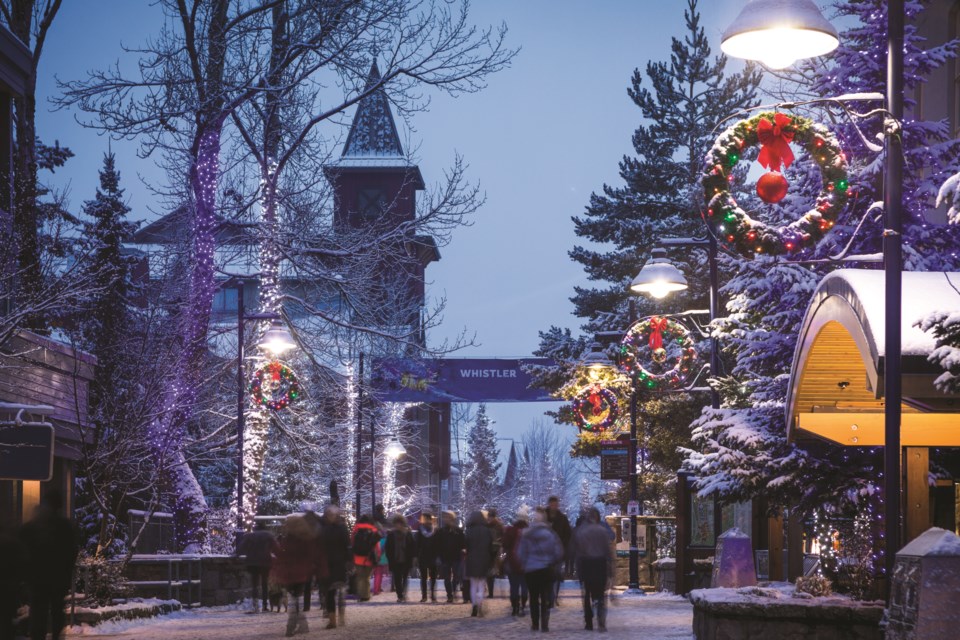The first time I heard John Lennon’s “Happy Xmas (War is Over)” it became my holiday anthem. Nothing so perfectly encapsulated the uneasy feeling I always had around Christmas. Sure, I liked some of what the time of year brought: gathering with friends and family was always fun, consuming good food and drink never got old, and who didn’t appreciate time off school or work—especially when snow was involved?
But then the rest: people pathologically stressed out about Christmas shopping and a growing list they had to buy presents for. Crass commercialization, gross consumerism and needless garbage. The bizarre concatenation of Christian myth and pagan winter solstice iconography cloaked in a transmogrified Nordic saga employed to shill the whole package to kids (having fingered Santa and crew as bunk at an early age, my parents actually paid me not to tell my younger brothers). And the worst of it: societal hypocrisy—a narrow, codified slice of time when otherwise indifferent, negligent and sometimes downright bad people and organizations did good deeds and sought public redemption. This bit drove me to distraction: why weren’t charity and doing the right thing encouraged all year? Why did we promote caring about each other at Christmas but the rest of the year let people starve, wars rage and companies pollute and rape the land with impunity? If Christmas in all its muddled symbolism was actually about lightness and good, should it not be a time to reflect on how this noblesse oblige was conducted in general?
Then over the radio it drifted in: So this is Christmas / And what have you done? / Another year over / And a new one just begun. Well. That was 1971, and I was 14, teetering on the edge of teen idealism, rocked by the upheaval of the late 1960s and spun out by the assassinations, wars and famines I read about daily in the newspaper. What had I done, indeed?
It made me think. It made my friends think. And though labelling it generational might perhaps be a stretch, a call to action was silently inculcated. I see this notion—a sensibility most people I knew have held onto over the years—as a gift: that it isn’t about what you do or don’t do at Christmas, but about what you’ve done and will do between the times it passes through. As with most other things in my life, a shift to bigger- picture thinking contributed to making this time of year more enjoyable. Instead of expecting something out of Christmas, I expected something out of myself.
Along with this came a change in both my own entitlements and my expectations of others. The former, which mostly engendered negative consequences, diminished, while the latter, the grist of change, increased. I became acutely aware of the flow of selfishness in society in general. And although entitlement and self-absorption have never been pretty, what we’ve observed over these past three years of the pandemic has been genuinely ugly. The constant whining over how nothing is working and everything is broken is like some comic childish tantrum. It’s also wrong. Because, of course, we’re the ones who’ve thrown a wrench in whatever isn’t working, and, if truly broken, the ones who broke it. For instance, when travel is frustrated by a potent combination of increased demand, powerful climate-change-induced weather, and ongoing illness and staff challenges, who’s actually to blame—and what have we done about it?
Nothing, it seems. It’s like we’ve completely forgotten what’s actually happened over the past few years. And yet, those most stressed- out and on edge appear to be taking it out on whoever is in front of them. Perhaps we’d be more charitable if we better understood the pandemic as the self-actualized event that it is, acknowledging the linkage between zoonotic disease and consumerism, overpopulation, resource extraction, globalization, climate change and biodiversity loss. Once we accept our individual—and collective—roles in precipitating, propelling and prolonging this pandemic, expectations and entitlements we have around systems and institutions (e.g., health-care, global supply chains, financial markets, mass transportation) struggling to restore themselves might change.
Reading the news this holiday season (and during summer’s air-travel disaster), it shocks me that people still can’t connect the dots. I won’t give them a pass because they could clearly do better, but how do we expect air and rail companies already dealing with reduced capacity and staff shortages to cope smoothly with storms conditions that are far more difficult to manage than in the past? The answer is we can’t. This is the way it will be for the foreseeable future. So instead of passively wishing everything back to normal, perhaps more of us should pitch in. Sure, we can make contributions to the climate and biodiversity emergencies by changing our own personal consumption habits, but we can also join and fund advocacy groups fighting for change, as well as stop electing people who don’t see the writing on the wall and aren’t prepared to act. Putting rage-farming politicians in office who sell stories about restoring entitlements that no longer exist will get us nowhere.
At the end of “Happy Xmas (War is Over),” the lyrics shift subtly but meaningfully, reflecting this eternal shared responsibility: And so this is Christmas / And what have we done?
Leslie Anthony is a biologist, writer and author of several popular books on environmental science.




